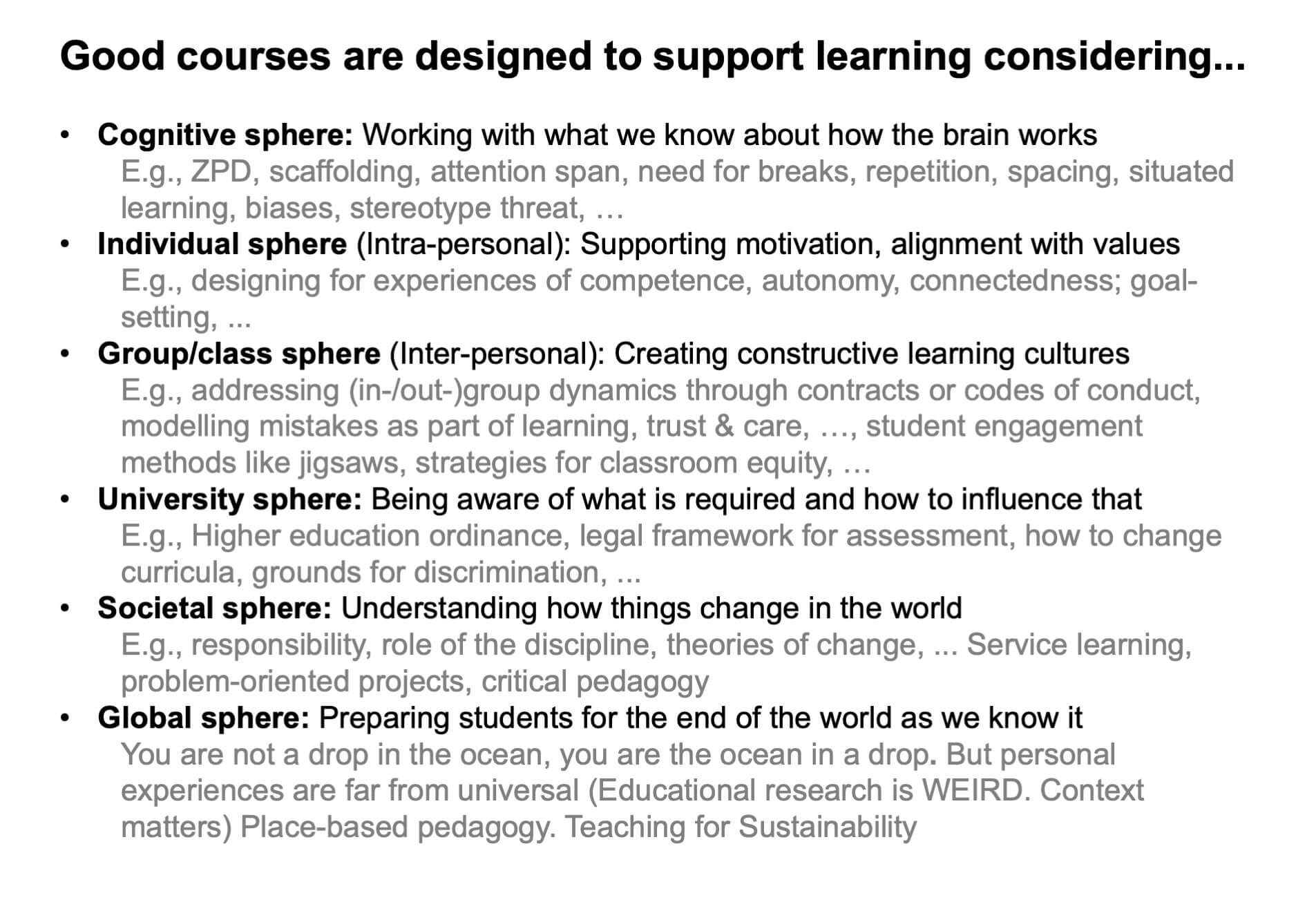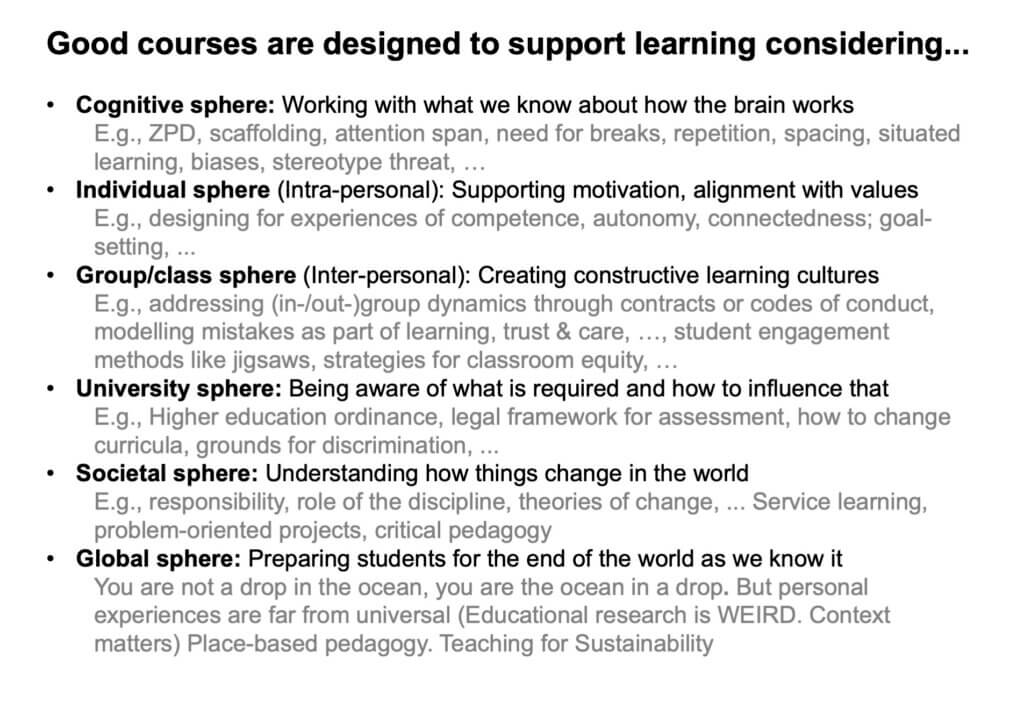
Developing “principles for quality education” to guide course development. Where does one even start?
I’ve been feeling inspired by Karolinska Institutet’s “Principles for Quality Education“, and I would like to develop something similar for my own work, and the group I work in. I think it is important for me and us to articulate what we believe is good education, mainly so we figure that out for ourselves, but also so we ourselves, as well as people who are considering approaching us, know what we stand for. They might not necessarily agree, but at least then we can start discussions from an informed basis. So here is a first attempt. Please read it as what it is — a very first draft. The process is the point.
At Karolinska Institutet, they develop their principles based on their Agenda 2030 strategy. My principles are also based on Teaching for Sustainability, and heavily inspired by Servant-Miklos (2024) “Experimental Pedagogies” (XP). She developed XP for Teaching for Sustainability, but I am using it to think about what teachers should consider when designing courses (in addition, obviously, to the Intended Learning Outcomes), which also means what kind of stuff should they learn in our courses.

Turns out I really like the structure, going from considering how individual brains work (They need breaks! Spacing! Repetition! Learning is situated! Our brain falls into lots of biases! It can really mess with our brains if stereotype threat is activated!), over what motivates individuals (e.g. feelings of autonomy, competence and relatedness; being in alignment with their values), how groups work (e.g. group dynamics, how to create learning cultures, how to actively engage students in peer activities, how to create an equitable classroom), how the university system influences what we do (e.g. what is the legal situation regarding what is required for a degree, or assessment, or discrimination, and how could they be changed? This is a sphere that I added to the original XP model), how we are a part of society and have a role to play (e.g. what is the role of the discipline in society, how can we contribute through e.g. service learning, what theories of change could we leverage), and lastly globally (how can we understand and influence global systems? Learn for the end of the world as we know it? How does our own, situated, contextual experience relate to the rest of the world? What can we learn from others?).
Especially the last point I find intriguing — how can we use hyper-local experiences (really nice example here) to relate to the rest of the world? How can we even learn to consider systems that are global and need to be looked at from so many different disciplinary, cultural, … perspectives?
Of course the different spheres are not independent of each other. What goes on in society is probably strongly related to what goes on in student groups (e.g. distribution of power), and that is connected to what mechanisms the university puts in place to counteract (e.g. discrimination).
In Servant-Miklos (2024) XP, there are also a lot of things on the individual level that I haven’t integrated in my model, regarding grounding people in their own bodies. Also mindfulness or breathing practices to calm and center people could be mentioned here.
What I don’t see yet how to integrate into this model is that the focus should be on student learning. Maybe the easiest way is to put it in the title: “Good students focus on student learning and consider the spheres…”?
So there we have it, my first draft of principles for quality education. I would love to hear your thoughts on it! :-)
Ginie Servant-Miklos (2024). Pedagogies of collapse. A hopeful education for the end of the world as we know it. Bloomsbury
One of my favourite podcasts discussing the book "Cultivating critical teaching behaviors" by Barbeau & Happel (2023) - Adventures in Oceanography and Teaching says:
[…] idea I had considered, inspired by Ginie Servant-Miklos’ pedagogies of collapse, are the different levels (from cognitive, individual, group, university, society, to global), but that is a lot more useful for structuring from our perspective than as a framework that we […]